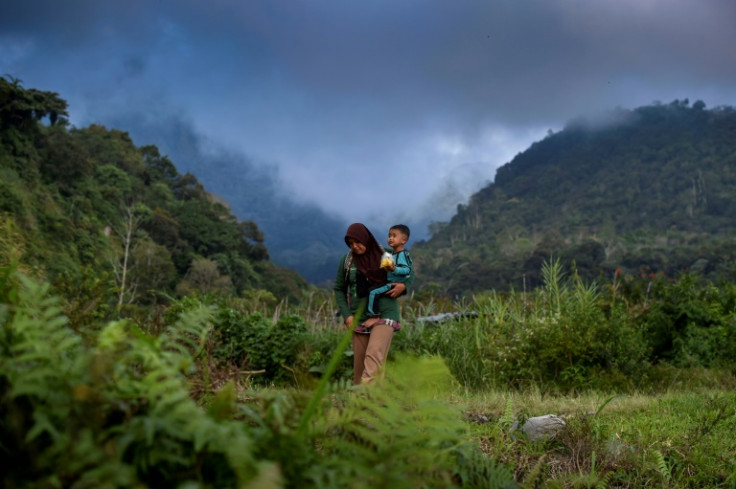Indonesia, Norway Ink Deal To Reward Rainforest Protection

Indonesia and Norway signed a deal Monday to reward deforestation reduction months after the collapse of a similar $1-billion agreement that was part of a UN-backed global initiative criticised for its ineffectiveness.
Protecting trees is key to meeting climate goals but environmentalists blame Indonesia -- home to the world's third-largest rainforest area -- for a deforestation free-for-all by allowing companies to clear land for new plantations.
Jakarta claims it has made progress by reducing the rate of primary forest loss for five straight years and Oslo will now reward it with "results-based contributions" for cutting emissions, Norway's ministry of climate and environment said in a statement.
"Today we are proud to embark on a new partnership to support the Indonesian government's impressive results and ambitious plans," said Norwegian Minister for Climate and Environment Espen Barth Eide in a statement.
But environmental activists say the deal will not change the situation in Indonesia with vast swathes of rainforest still being destroyed to make way for palm and timber plantations that threaten endangered species and push indigenous people off their lands.
"The agreement does not solve existing problems, including recognition of indigenous people," Greenpeace Indonesia forest campaigner Iqbal Damanik told AFP.
"The point made is 'successfully reducing deforestation', not zero deforestation. It means there is still deforestation in Indonesia going forward."
The countries had signed a landmark deforestation deal in 2010 with Norway offering Indonesia $1 billion to slash its emissions.
But Jakarta cancelled it last year saying it didn't see enough of the money, while research showed it only made a small dent in Indonesia's carbon-cutting targets.
Critics of the United Nations-backed REDD+ mechanism under which the deal was struck said it was ineffective and trampled on indigenous communities' rights.
Under the new agreement Norway will send Jakarta an initial $56 million payment for its deforestation reduction in the year 2016 to 2017, the statement said.
It will then pay Indonesia for years of reductions that followed after verifying the drops in deforestation, meaning it could be worth hundreds of millions of dollars to Jakarta.
Indonesia has an ambitious goal to reach a net carbon sink -- storing more carbon than it releases into the atmosphere -- by 2030 but its vast forests are still shrinking.
The country's tree cover has decreased by 18 percent since 2000, a loss that accounts for 6.5 percent of the global total since then, according to Global Forest Watch, a monitoring programme of the environmental research group World Resources Institute.
© Copyright AFP 2025. All rights reserved.





















